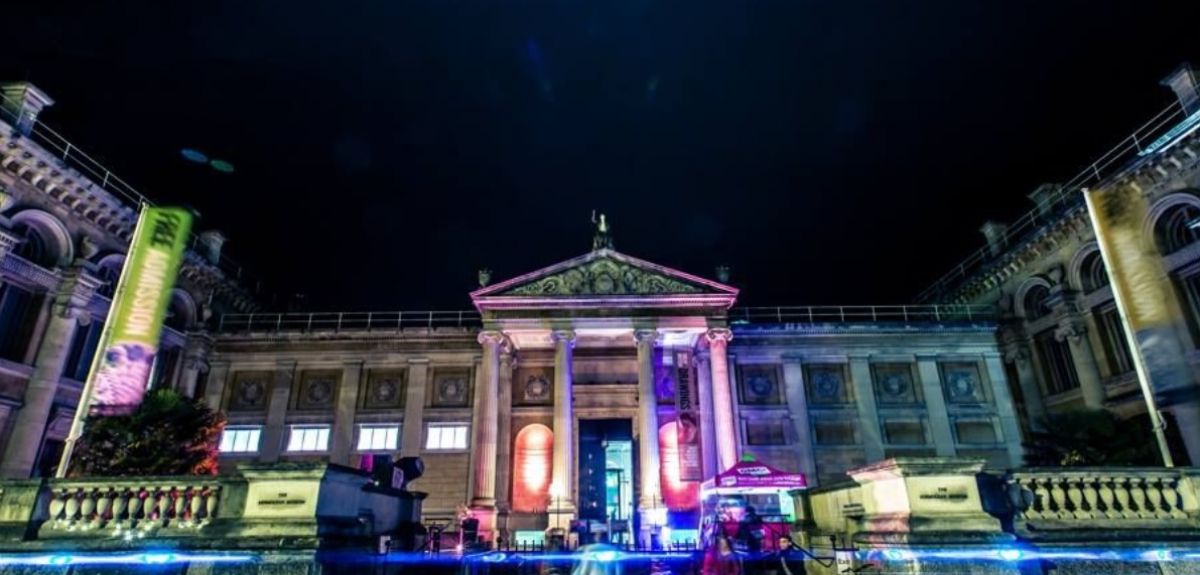
Ian Wallman
Humanities research to be turned into gameshow and drama on FrightFRIDAY
Tonight, The Oxford Research Centre in the Humanities (TORCH) and the Ashmolean Museum are teaming up for FRIGHTFriday, a free, awe-inspiring evening of events exploring the art and science of hope and fear.
There are intimate talks, interactive workshops and inspiring installations to discover throughout the museum’s galleries. The evening brings together actors, musicians, performers and researchers from across Oxfordshire to explore our deepest, and most human, hopes and fears.
At the Ashmolean, Oxford humanities academics will engage the public with their research in a number of unusual ways.
Oxford historian Steven Gunn will ask an audience questions about his research into accidental deaths in Tudor England. Participants will guess whether a Tudor servant died from being knocked over by a large quantity of bacon, and whether a butcher died in church because a theological book fell on his head.
Oxford University English literature expert Professor Sally Shuttleworth will tell visitors about the phobias that have been recorded in Early Modern England, including a fear of cats. This is part of her research project called ‘Diseases of Modern Life’.
Oxford's music researcher Leah Broad is leading drama pieces from the Swedish playwright Strindberg where the actor answers a series of phone calls and the audience only hears half the eerie conversation. Crime writer Margie Orford will explore the attraction of the dead white woman in western art.
There will be a theatrical performance from the project ‘Storming Utopia –- Islands and Identities in Crisis’, a collaboration between the University of Oxford, a youth theatre in East Oxford, and the Fondazione Cini in Venice.
There will also be intimate talks, interactive workshops and inspiring installations to discover throughout the museum’s galleries. The evening brings together actors, musicians, performers and researchers from across Oxfordshire to explore our deepest, and most human, hopes and fears.
FRIGHTFriday is a collaboration between TORCH and the Ashmolean Museum, with support from the Wellcome Trust. It is the national Festival Finale for the Being Human Festival, which is led by the School of Advanced Study, University of London in partnership with the AHRC and the British Academy.
‘Our aim is not simply to do research, but to use it to engage a wide audience, and what better way to do that than by inviting thousands of people spend their Friday night with our top researchers?’, says TORCH Director Elleke Boehmer.
'It's amazing how our work in the humanities produces this vast range of thrilling, almost literally explosive, effects. Watch the Ashmolean museum come even more alive than ever on Friday 25th’.
Susan McCormack, Head of Public Engagement at the Ashmolean Museum, said ‘The Ashmolean is thrilled to collaborate across the Humanities and beyond through TORCH for the Being Human Festival. It is such a natural fit for the LiveFriday series, as well as an excellent opportunity to participate in the National Festival of the Humanities.’
Professor Sarah Churchwell, Director of the national Being Human Festival says ‘We are thrilled that FRIGHTFriday is the official Being Human festival finale. The diversity of the research on show, in the inspiring setting of the Ashmolean Museum, will provide a sensational ending to nine days of humanities fun across the country. The festival features over 205 events in 45 towns and cities across the UK this year, and FRIGHTFriday will represent a fantastic conclusion to the programme.'
TORCH enables Oxford University’s Humanities scholars to work across disciplines, and develops partnerships with public and private institutions, engages with wider audiences, and brings together academic research, creative industries, and the performing arts, through world-class research.
The evening will be made up of several large performances in the main atrium of the Museum (orchestra, performances, processions etc) and around 30 activities and events throughout the museum, which will include researchers from across all of the Oxford Humanities Faculties, and also from all of the other Divisions of the University (Social Sciences, Material, Physical and Life Sciences (MPLS), and Medical Sciences).
 Expert Comment: Chatbot-driven sexual abuse? The Grok case is just the tip of the iceberg
Expert Comment: Chatbot-driven sexual abuse? The Grok case is just the tip of the iceberg
 New study finds that stopping weight-loss drugs is linked to faster regain than ending diet programmes
New study finds that stopping weight-loss drugs is linked to faster regain than ending diet programmes